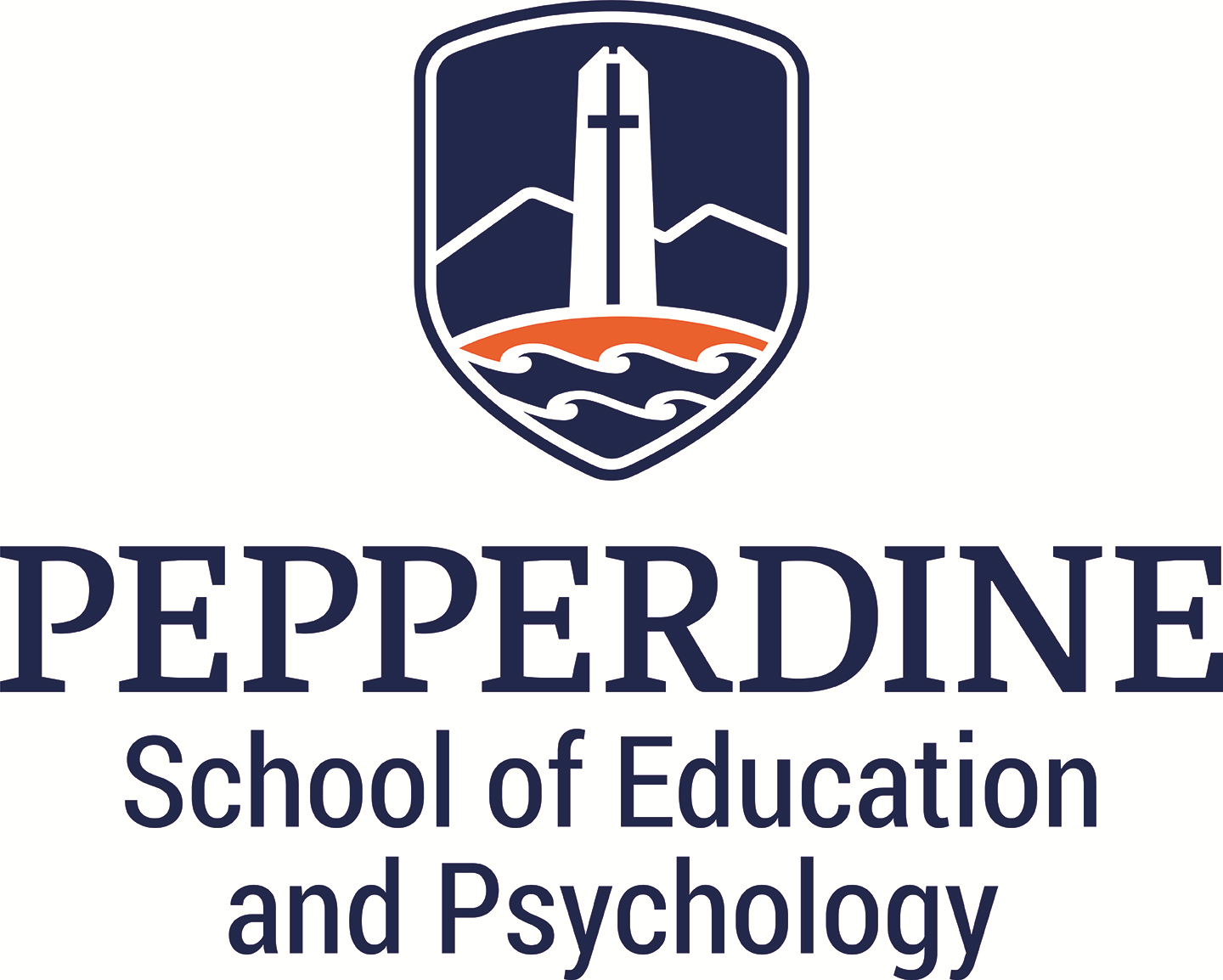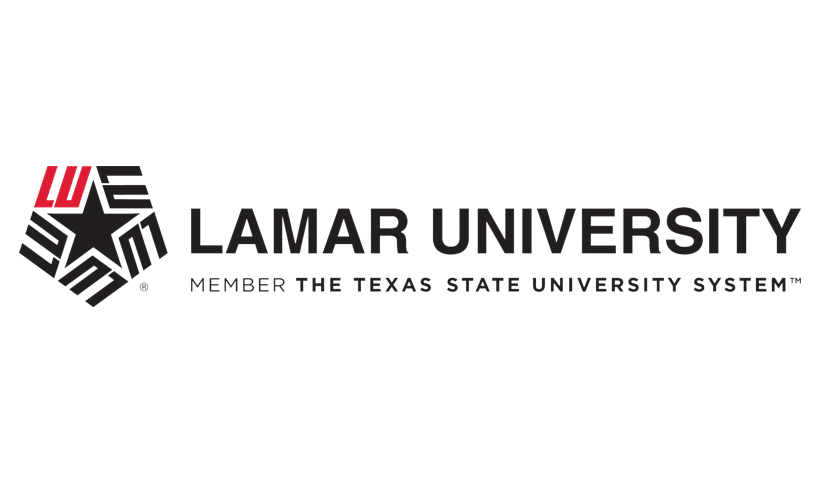Reviewed by: Megan Kelly, MA, LMHC
Becoming a Licensed Clinical Professional Counselor (LCPC) designates an individual as a trained and licensed professional in the fields of mental health and psychotherapy in the United States. This professional designation signals that graduates met both the educational and clinical training requirements to work at an organization that provides counseling services, such as a community mental health center or in their own private practice.
Students who are researching “what is an LCPC” should know it’s important to review degree programs that prepare students for LCPC licensure to ensure they’re accredited, and that coursework meets the licensing requirements of the state in which they plan to practice.
Students who are interested in pursuing an online degree program must weigh their options carefully, to determine whether the programs they’re looking into are flexible and credible enough for them to successfully advance their education in mental health and counseling.
Consider a Featured Online Counseling Program
| School and Program Information | Online Program? Entry Requirements | Course Information | |
|---|---|---|---|
|
Walden University
MS in Clinical Mental Health Counseling
 CACREP Accredited CACREP Accredited |
✔ Online
GRE scores not required
|
Walden’s online CACREP-accredited MS in Clinical Mental Health Counseling program can help you become the competent, compassionate counselor you know you can be.
|
Learn More |
|
Walden University
MS in School Counseling
 CACREP Accredited CACREP Accredited |
✔ Online
GRE scores not required
|
CACREP-accredited program provides a solid foundation in school counseling theories, approaches, and best practices while enabling you to gain hands-on experience.
|
Learn More |
|
Northwestern University
Online MA in Counseling
 CACREP Accredited CACREP Accredited |
✔ Online
GRE Not Required
Bachelor's Required |
CACREP-accredited online Master of Arts in Counseling from The Family Institute at Northwestern University. Prepare to pursue licensure in as few as 18 months.
|
Learn More |
|
Northwestern University
Master of Science in Marriage and Family Therapy
COAMFTE Accredited
|
✔ Online
GRE Not Required
Bachelor's Required |
Complete your COAMFTE-accredited MFT online program in as few as 21 months. No GRE required.
|
Learn More |
|
Grand Canyon University
Master's Degree in Counseling
 CACREP Accredited CACREP Accredited |
✔ Online
|
CACREP-accredited MS in Clinical Mental Health Counseling. Emphases: Marriage & Family Therapy, Christian Counseling, Childhood & Adolescence Disorders, & Trauma.
|
Learn More |
|
Liberty University
MA: Clinical Mental Health Counseling
 CACREP Accredited CACREP Accredited |
✔ Online
Online with required intensives
|
Our CACREP-accredited online master’s in counseling helps you become a skilled mental health counselor ready to empower others for positive change.
|
Learn More |
|
National University
Master of Science in Clinical Mental Health Counseling
WSCUC Accredited
|
✔ Online
GRE Scores Not Required
|
Focused on training highly skilled counselors to provide impactful and culturally sensitive mental health services in their communities.
|
Learn More |
|
University of Denver
Master of Arts in School Counseling
 CACREP Accredited CACREP Accredited |
✔ Online
No GRE Required; Minimum GPA 2.5 Required
|
With no GRE required, earn your CACREP-accredited Master's in School Counseling online in as few as 24 months from the University of Denver.
|
Learn More |
|
Mid-America Christian University (MACU)
Master of Science (MS) in Counseling
Higher Learning Commission (HLC)
|
✔ Online
100% Online
|
Oklahoma’s largest MS in Counseling program, with emphases in addiction and substance abuse, applied behavioral science, clinical mental health counseling, and more!
|
Learn More |
*Sponsored Counseling Programs
For detailed degree information, view the guides to:
Online CACREP Accredited programs | Online MPCAC Accredited programs
What is an LCPC?
A Licensed Clinical Professional Counselor (LCPC) is a trained and licensed expert in mental health and psychotherapy in the United States. Earning the LCPC designation means that an individual has completed rigorous educational and clinical training requirements. LCPCs are qualified to work in diverse environments, including community mental health centers and private practices, providing essential counseling services to those in need.
What Is an LCPC License?
An LCPC license is awarded to professionals who have met the rigorous requirements to practice clinical counseling set by the state in which they work. This typically requires the licensee to successfully complete a master’s degree in a related field, such as psychology or counseling. Professionals with this license type are also required to have accumulated a certain number of direct-service counseling hours under the supervision of a licensed counselor prior to earning their license.
Individuals who hold a LCPC license are permitted to work with individuals or groups of people who are struggling with emotional concerns, behavioral issues, or addiction. The license indicates that practitioners have the skills to develop treatment plans for clients, and/or collaborate with other medical professionals if multiple supports are needed to help a client achieve their counseling goals.
Moreover, an LCPC license helps professionals pursue career opportunities in a variety of different settings, including educational institutions, health care facilities, local, state, or federal government institutions, or in private practice.
LCPCs work with individuals, groups, and families to address a wide range of emotional, behavioral, and mental health issues. They are skilled in developing treatment plans, conducting assessments and diagnoses, and collaborating with other healthcare professionals to support their clients’ mental health and well-being.
What Kinds of Professional Counselors Are There?
There are several types of professional counselors, each specializing in different areas of mental health and human development. These include:
- School Counselors: Focus on the academic, career, social, and emotional development of students in educational settings.
- Career Counselors: Help individuals make informed career choices and navigate career transitions.
- Substance Abuse Counselors: Specialize in treating individuals with addiction and substance abuse issues.
- Rehabilitation Counselors: Work with individuals with disabilities to achieve their personal, career, and independent living goals.
- Mental Health Counselors: Address a broad range of mental health issues, including anxiety, depression, and relationship challenges.
- Marriage and Family Therapists (MFTs): Specialize in treating relationship and family issues.
- Gerontological Counselors: Focus on the mental health needs of elderly individuals.
Each type of counselor requires specialized training and licensure to practice in their respective fields.
What Does It Take To Get an LCPC License?
There are seven different states where a counseling professional can pursue the Licensed Clinical Professional Counselor credential:
- Nevada (view Nevada counseling programs)
- Idaho (view Idaho counseling programs)
- Illinois (view Illinois counseling programs)
- Kansas (view Kansas counseling programs)
- Maine (view Maine counseling programs)
- Maryland (view Maryland counseling programs)
- Montana (view Montana counseling programs)
LCPC License Requirements
LCPC degree requirements include master’s-level coursework that teaches students about establishing therapeutic relationships, working with groups, assessment and diagnosis, human growth and development, research methods and evaluation techniques, and the legal and ethical standards of counseling, among many other things.
Supervised direct-service experience is also a requirement, as well as an internship that students complete during their master’s program. Internships typically involve at least 600 hours of clinical session hours, however some states may require more or less than this.
Each state has its own specific criteria that aspiring Licensed Clinical Professional Counselors must fulfill. Students should carefully review state standards to determine whether the program they’re considering meets those academic and supervised experience standards.
Among the best ways to satisfy most requirements is to complete a degree program that is regionally accredited, or accredited by the Council for Accreditation of Counseling and Related Educational Programs (CACREP). This ensures the program has gone through a rigorous review process, and offers the required coursework, clinical practicum and internship experiences needed to gain an advanced degree.
State Licensed Clinical Professional Counselor Requirements
To obtain the LCPC license, applicants must demonstrate they’ve met specific educational standards and, in most cases, must pass the National Clinical Mental Health Counseling Exam (NCMHCE).
It should be noted that the National Counselor Examination (NCE) may not satisfy competence requirements for a clinical mental health license like the LCPC. The National Board for Certified Counselors (NBCC) notes that the NCE is the most common exam to gain counselor licensure in states that require it, and that the NCMHCE is a specialty exam most often required for clinical licenses. Additionally, students who take and pass the NCMHCE may qualify for National Certified Counselor (NCC) status, depending on their educational and experiential background. This can be helpful in seeking employment opportunities.
Clinical Experience
Upon completing a master’s degree, most states require aspiring LCPCs to obtain supervised clinical experience. The number of supervised clinical hours that are required depends on the state granting the license. In addition, supervised clinical experience requirements may change based on what an individual has completed as part of their degree program.
Recertification
LCPC requirements note that to maintain a license to practice, license holders typically need to complete a certain number of continuing education (CE) hours, usually every two years. However, deadlines to complete CE hours vary from state to state. Record keeping for CEs is the license holder’s responsibility, as some states may require proof for each recertification, whereas other states may randomly ask for proof.
How to Become a Licensed Clinical Professional Counselor (LCPC)
- Research State-Specific Requirements: Every state has unique requirements for counseling licensure. Prospective LCPCs should start by reviewing the specific educational, experiential, and examination criteria set forth by their state’s Department of Health.
- Complete a Master’s Degree: Obtain a master’s degree in counseling or a related field. Coursework should cover therapeutic relationships, group work, diagnosis, and legal/ethical standards. Choose a program that is regionally accredited or accredited by the Council for Accreditation of Counseling and Related Educational Programs (CACREP).
- Gain Supervised Clinical Experience: Post-graduation, accumulate supervised clinical hours as mandated by your state. This experience is crucial for developing practical counseling skills under the guidance of a licensed professional.
- Participate in an Internship: Engage in an internship during your master’s program, typically involving at least 600 hours of clinical session hours, although requirements vary by state.
- Prepare for and Pass the Licensing Exam: Study for and pass the National Clinical Mental Health Counseling Exam (NCMHCE) or a state-recognized equivalent. Some states may also require a jurisprudence exam, testing knowledge of laws related to counseling.
- Apply for Licensure: Submit an application for licensure to the state board, including proof of education, clinical experience, and exam results. Pay any associated licensing fees.
- Obtain Temporary or Associate’s License: If eligible, apply for a temporary or associate’s license to practice under supervision, which can be a stepping stone to full licensure.
- Complete Continuing Education: To maintain licensure, complete the required number of continuing education (CE) hours every two years, as per your state’s guidelines. Keep records of all CEs for recertification purposes.
- Stay Informed About Changes in Requirements: Be aware of any changes in state requirements for licensure renewal, including additional coursework or new ethical guidelines.
Learn More: How Long Does it Take to Become a Counselor
Professional Counselor Salary & Job Outlook
According to the U.S. Bureau of Labor Statistics (BLS), the median annual wage for substance abuse, behavioral disorder, and mental health counselors was $53,710 as of May 2023. Salaries can vary based on factors such as location, experience, and industry, with the highest-paying sectors including government, hospitals, and individual and family services.
Industry Specific Salaries for Counselors
- Median Annual Salary for Counselors: $53,710
- Hospitals; state, local, and private: $59,090
- Offices of other health practitioners: 55,410
- Outpatient mental health and substance abuse centers: 51,130
- Individual and family services: 51,010
- Residential mental health and substance abuse facilities: 46,880
Counselor Job Outlook
The job outlook for this field is highly favorable, with an expected growth rate of 18% from 2022 to 2032, driven by increasing demand for counseling services.
LCPC vs. LPC
Understanding the difference between a Licensed Clinical Professional Counselor (LCPC) and a Licensed Professional Counselor (LPC) is crucial for those considering a career in counseling.
Educational Requirements: Both LCPCs and LPCs require a master’s degree in counseling or a related field. However, LCPCs often need additional coursework or specialization in clinical counseling.
Scope of Practice: LCPCs generally have a broader scope of practice, including the ability to diagnose and treat more complex mental health conditions. In contrast, LPCs may have limitations in these areas, depending on state regulations.
Career Opportunities: LCPCs often have access to a wider range of career opportunities, including supervisory and management roles, and may operate private practices. LPCs, while also able to work in diverse settings, might find certain advanced positions more accessible to LCPCs.
State-Specific Variations: Both licenses vary by state in terms of requirements and scope. It’s important for professionals to be familiar with their state’s regulations to understand the full extent of their practice capabilities.
Continuing Education and Recertification: Both LCPCs and LPCs are required to engage in continuing education to maintain their licensure. This ensures they stay updated with the latest practices and ethical standards in the evolving field of mental health counseling.
By choosing between an LCPC and an LPC, professionals align their career trajectory with their interests, specialties, and desired level of practice.
- Learn More: LCP vs LCPC
Top Degree Programs For a LCPC License
Northwestern University
The Family Institute at Northwestern University in Illinois offers an Online Master of Arts in Counseling that prepares students for board certification and state licensure. The program is geared toward students with a background in psychology, and those who are new to the counseling field. Individuals who don’t have an undergraduate degree in a psychology-related field can pursue the Bridge to Counseling program, which provides foundational courses in clinical interviewing and the latest topics in counseling.
There are three tracks for the Bridge to Counseling program: accelerated, part-time, and traditional. These tracks are also available in the standard program. The accelerated format is available except for California licensing, and can be completed in a seven-quarter span. California rules require two quarters of academics before entering practicum sessions, which does not work in the accelerated format.
In addition to these two programs, students can add courses to specialize in child and adolescent counseling. This special track provides coursework on the evaluation and treatment procedures when working with youth. It also teaches students about the growth and development stages that children undergo.
Applicants to the program must hold a bachelor’s degree, but submitting GRE scores is not mandatory. Students must complete two in-person residencies. The first helps them prepare for the program, while the second is a capstone project to demonstrate what they’ve accomplished while pursuing their degree. This is a CACREP-accredited program and is offered both in-person and online.
Bellevue University
The Master of Science in Clinical Mental Health Counseling at Bellevue University is a 60-credit-hour program for students interested in becoming a licensed counselor. Although the program’s coursework and credit hours fulfill most state requirements, students should review the requirements in the state in which they wish to practice.
Bellevue’s CACREP-accredited MSCMHC program includes 100 hours of practicum sessions and 600 clinical internship hours, 40% of which must involve direct contact with clients. Foundational courses in Bellevue’s program include classes that prepare students to develop the four key skills of a clinical mental health counselor: assessment, case conceptualization, diagnosis, and treatment planning. . Elective options include classes such as human sexuality, Orthodox Judaic theoretical perspectives, and trauma, crisis, and traumatic stress counseling, among others.
The Bellevue Master of Science in Clinical Mental Health Counseling program is available on campus and online. Online courses are hosted by the Cyber-Active Online Classroom. This enables students to attend courses and complete assignments on their own time, interact digitally with fellow students, and utilize resources in an online library.
Program applicants must have completed a bachelor’s degree and have graduated with at least a 3.0 cumulative GPA. Other admissions requirements include submitting transcripts, a current resume, two letters of recommendation from professional colleagues, and a 1,000-word essay that outlines their career goals and how completion of Bellevue’s MSCMHC can help them achieve their goals.
Capella University
The CACREP-accredited Master of Science in Clinical Mental Health Counseling program at Capella University prepares students to become certified mental health counselors. This 100% online program aids students in the process of becoming a licensed professional in all 50 states.
The coursework meets LCPC requirements and the curriculum includes classes such as principles of psychopathology and diagnosis, introduction to clinical mental health counseling, and crisis assessment and intervention, among others. The program also includes two internships totaling 600 hours, and a practicum totaling 100 hours, designed to help students become more comfortable in providing mental health care to clients, dealing with crisis management, and performing administrative tasks in the treatment process.
LCPC Career Options
What is an LCPC license and what careers can you pursue once you obtain it? The career paths are numerous and include licensed professional clinical counselor, psychotherapist, and school counselor,, among others.
Some individuals who obtain their LCPC go on to pursue additional schooling at the Doctorate level, which allows them to practice as clinical psychologists, educational psychologists, or counseling psychologists.
Although the average salaries for counselors are listed below, salary ranges can vary widely based on an applicant’s experience level and the location in which they work.
Licensed Clinical Professional Counselor
Licensed clinical professional counselors provide psychotherapy, behavioral therapy, and other types of counseling services to patients. They’re trained to work with patients of all ages, including children, adolescents, adults, and the elderly. Some professionals in the field may prefer to specialize in a particular patient demographic.
Those who choose the path of becoming a counselor are trained to work with individuals, couples, groups, and families to help address specific behavioral, emotional, mental, or social issues.
LCPCs work in a variety of settings, such as schools, hospitals, state and government institutions, nonprofits, corporations, and in private practice. Their advanced training helps prepare them for managerial and supervisory roles. According to the BLS website, as of May 2021, the average salary for Substance Abuse, Behavioral Disorder, and Mental Health Counselors was $48,520 per year.
Clinical Psychologist
Clinical psychologists diagnose and treat patients with behavioral and emotional disorders. They identify specific problems and explore what has impacted the client’s abilities. Patient exploration may include further discussions to determine background or historical events, or giving tests to analyze information. Psychologists often specialize in a specific group of people or a certain type of psychology. Data from PayScale notes that as of December 2020, the average mid-career clinical psychologist salary was $80,847.
Counseling Psychologist
Counseling psychologists deal less with applying theory and concentrate more on communicating with clients to talk them through their issues. This may lead to further conversations with partners or family members who may be impacted by the client’s actions or behaviors. Counseling psychologists never provide medical treatment for their clients, and the vast majority of states do not allow prescriptions from clinical psychologists. Data from PayScale notes that as of October 2020, the average mid-career salary for counseling psychologists was recorded at $57,888.
Education Psychologist
Education psychologists work in academic settings such as elementary, middle, and high schools and help students achieve their learning potential. They may also work with students who have learning disabilities such as autism and attention deficit hyperactivity disorder. Professionals who work in this field may also provide services to students who are being bullied. Data from PayScale notes that as of October 2020, the average mid-career salary for educational psychologists was $75,116.
Job Outlook for Psychologists
According to the U.S. Bureau of Labor Statistics (BLS), job growth for psychologists is expected to increase 3% between 2019 and 2029. The BLS projects that demand for psychological service will continue to increase due to a variety of factors, including increased demand for in-school services, and services at mental health centers, social service agencies, veteran’s affairs agencies, and hospitals.
Are you ready to pursue a career as an LCPC? Research the degree programs at Northwestern University, Bellevue University, and Capella University to determine which school is right for you.
LCPC FAQ
Q: What does LCPC mean?
A: LCPC stands for Licensed Clinical Professional Counselor, a designation for professionals who have met educational and clinical training requirements to provide mental health counseling.
Q: What states give LCPC credentials?
A: LCPC credentials are offered in several states. Requirements vary by state, so it’s important to check specific state guidelines.
Q: What degree do I need to become an LCPC?
A: A master’s degree in counseling or a related field is typically required to become an LCPC.
Q: How long does an LCPC license last?
A: LCPC licenses usually need to be renewed every two years, though this can vary by state.
Q: Is a Licensed Clinical Professional Counselor a good career?
A: Yes, it can be a rewarding career for those interested in mental health, offering diverse opportunities in various settings.
Q: What’s the difference between a licensed clinical counselor and a counselor?
A: A licensed clinical counselor typically has advanced training and is licensed to diagnose and treat mental health disorders, while a general counselor may focus more on guidance and support without the ability to diagnose.
Sources:
National Board for Certified Counselors, Examinations
BLS: Substance Abuse, Behavioral Disorder, and Mental Health Counselors
BLS: Occupational Employment and Wages, May 2019 – Clinical, Counseling, and School Psychologists
Still Looking For A Counseling Degree?
Here are some of the most popular online counseling programs. On each page you will find a detailed write-up of the program, specific courses, and schools that offer that program that are currently accepting applicants.

















